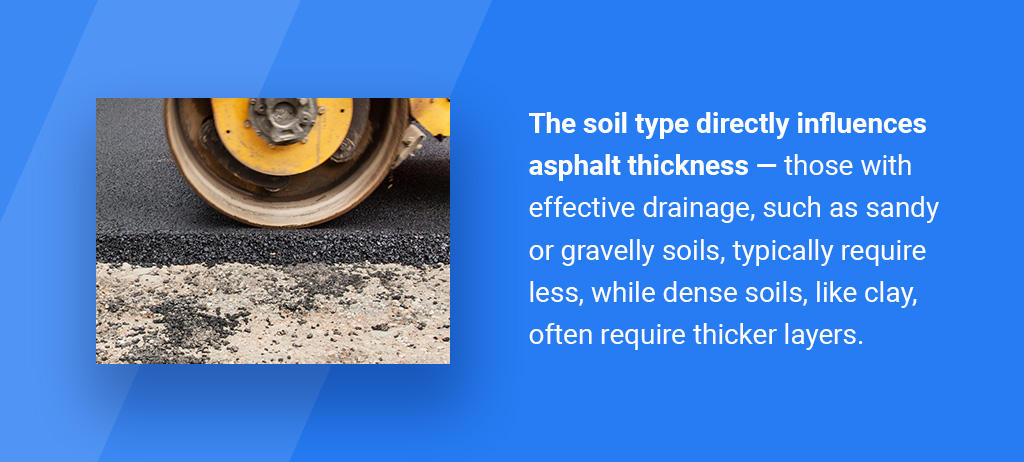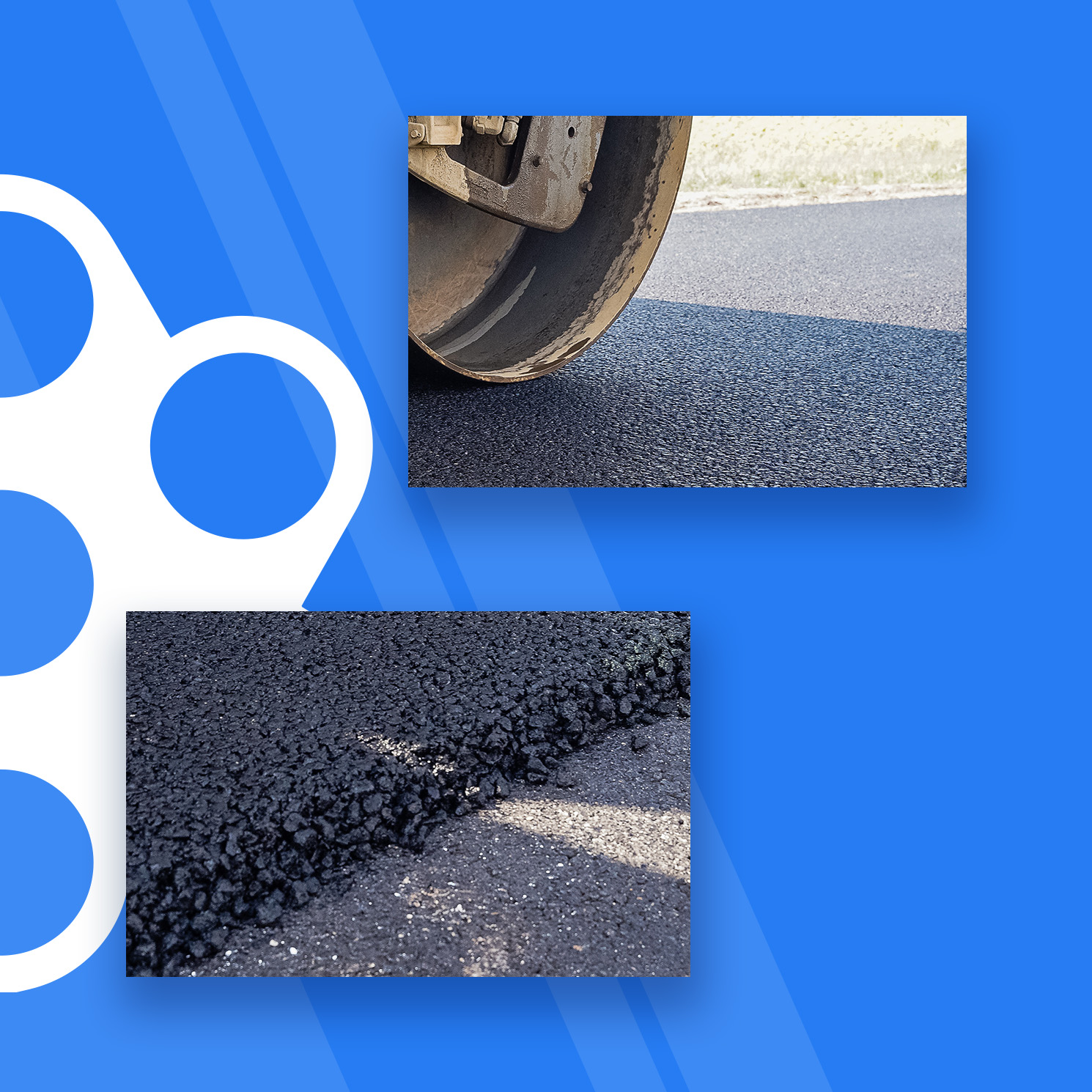


Thickness, often measured in inches or millimeters, is the vertical depth of the asphalt layer in a pavement structure. Inadequate or excessive thickness can cause various issues and impact longevity. Explore the importance of having the right thickness and how to determine the ideal asphalt measurement for your commercial site.
Asphalt thickness for parking lots, warehouse floors, airport runways, and other commercial applications is crucial to the structure’s durability. This characteristic directly impacts the load the pavement can handle — whether from vehicles, equipment, or materials — without excessive stress. The right thickness also ensures your asphalt lasts for as long as possible, helping your facility make the most of its investment.
Calculating the right amount of asphalt can help commercial facilities achieve smooth, safe surfaces that accommodate daily operations.
When asphalt is too thick, you may encounter the following problems:
Insufficient asphalt thickness can introduce these complications:
The exact thickness that is best suited for your facility will depend on several factors. Generally, most commercial sites, such as warehouses, airports, or retail centers, need at least 3 to 8 inches of depth to effectively withstand regular activity.
Explore the key considerations for calculating adequate asphalt thickness for your specific location below.
An important factor to assess when determining thickness is the traffic load in the area you are paving. For areas that experience more frequent use, your facility will likely need a thicker asphalt layer to withstand the weight of common vehicles and equipment. Low-traffic zones can typically have thinner layers — however, they still need to be strong enough to handle maximum loads without material-related distress.
Consider the heaviness of your vehicles, equipment, and other loads and the total weight your paved areas need to accommodate.
Assessing the intended uses for your asphalt is crucial to getting the right thickness to ensure your paved regions are suited to withstand your commercial facility’s daily activities.
For instance, asphalt thickness for trucks or heavy equipment will differ from paved walkways. These areas require different loads and must have the appropriate strength to undergo the stress of typical weight distribution. Before installation, determine the maximum load of each area and how your team will use it. Whether you’re paving a parking lot, airport runway, or warehouse loading zone, the intended use is among the most important considerations for thickness.


Another consideration for asphalt layer thickness is the underlying soil conditions. Before new installations or upgrading existing pavement construction, ensure the subgrade is stable and strong, or you could experience premature failures. The area needs adequate drainage, leveling, and compaction to create a suitable setting for your paved zone.
The soil type directly influences asphalt thickness — those with effective drainage, such as sandy or gravelly soils, typically require less, while dense soils, like clay, often require thicker layers.
The climate in your commercial facility’s location also impacts the ideal asphalt pavement thickness design for longevity. Humidity levels and fluctuating temperatures can significantly affect performance over time.
You may require a slightly thicker layer if your business is installing asphalt in areas that experience extreme climate variations or excessive rainfall. The additional depth can help your paved area resist cracking and deformation under changing weather conditions to serve your operation for longer.
Consider the construction of your paved area, including its foundation and the materials used. The overall design will affect how thick the asphalt must be to reduce stress and distribute loads effectively.
Assess whether the pavement will feature an overlay to boost structural capacity. This additional feature and the number of asphalt layers may impact the thickness requirements for your paved zone.
Investing in stronger solutions that enable your facility to embrace thinner asphalt is highly beneficial. Your business can use asphalt fiber reinforcement solutions to enhance performance, structural integrity, and longevity.


A huge perk of choosing stronger, reinforced asphalt solutions is saving expenses on frequent resurfacing and long-term maintenance. Reinforcement can reduce the likelihood of rutting, cracking, and raveling. This extends the lifespan of thinner asphalt, helping businesses get the most out of their investments.
A professional can help you understand what reinforcement solutions are right for your paved areas.
Consulting pavement design professionals, like the team at FORTA, is the best way to ensure you get the right asphalt thickness for your specific commercial site. These experts will help your business accurately assess the weight distribution and load for your paved areas. They will analyze traffic data and perform the calculations to support a long-lasting and cost-effective design.
At FORTA, our fiber reinforcement solution, FORTA-FI®, enables your commercial facility to leverage thinner asphalt that provides resistance to rutting, cracking, erosion, and shoving.
Fiber-reinforced asphalt concrete leverages synthetic fibers to create three-definitional strength and supercharge durability and longevity. No matter your area’s fluctuating weather conditions or traffic patterns, our solutions can help your facility make the most of its asphalt structures and minimize the frequency of replacement, saving you time and costs while benefiting the environment.
Work with FORTA for unmatched expertise to ensure fiber performance and enjoy comprehensive solutions with proven results.
If the asphalt at your commercial facility requires rehabilitation or enhancement, turn to the solutions from FORTA. As the leading synthetic reinforcement fiber manufacturer for nearly five decades, we are your trusted partner in pavement preservation. Our engineers can help you get the fiber reinforcement solutions to strengthen your asphalt and extend its lifespan to better serve your operations.
Are you ready to get started with your commercial asphalt project? Contact FORTA to connect with our team for a design request or answers to your questions today!